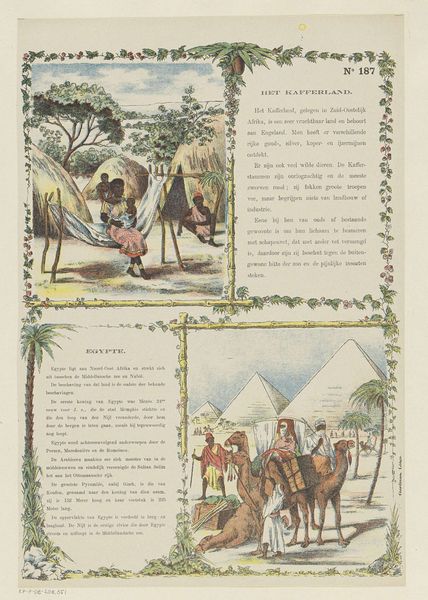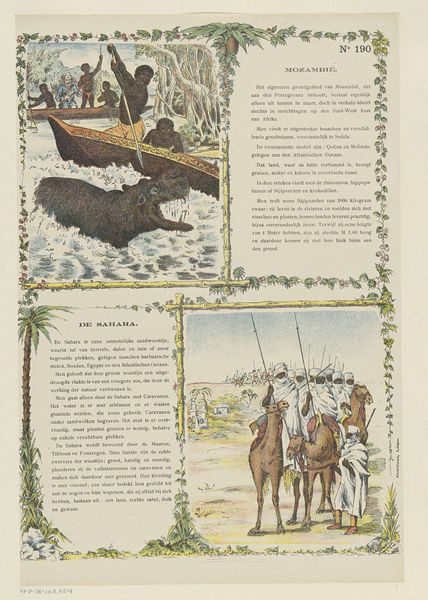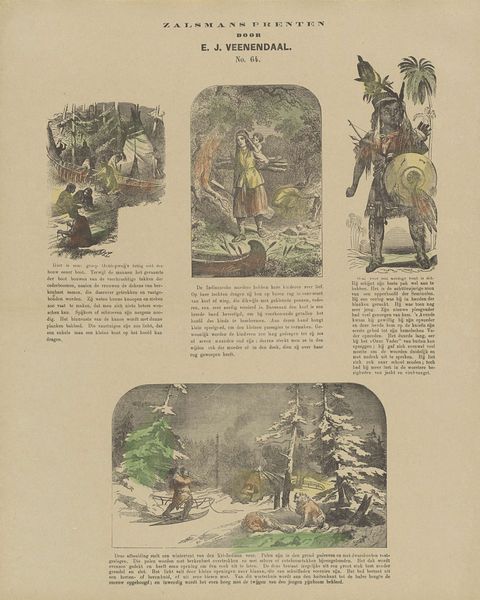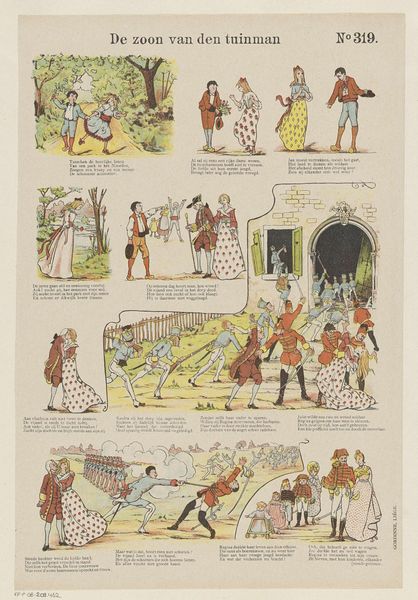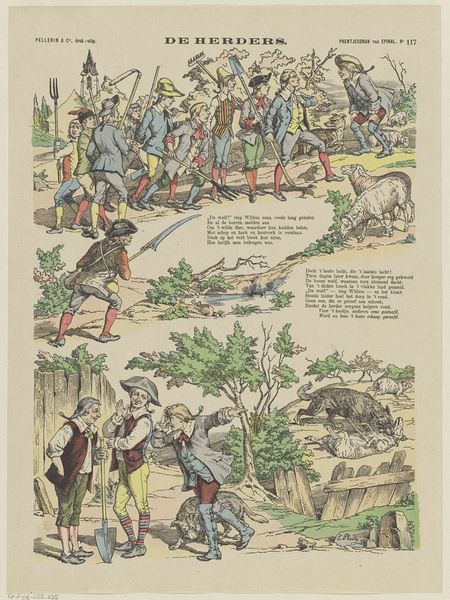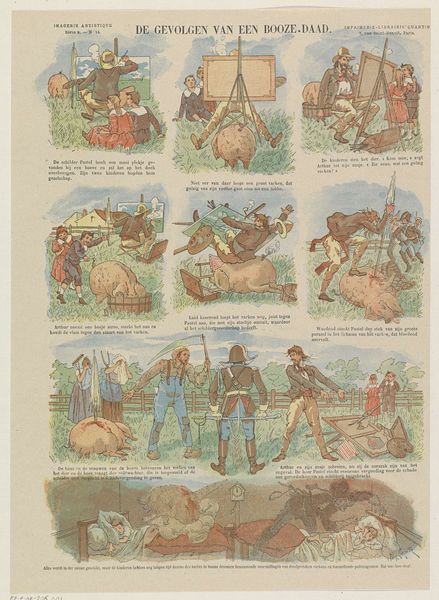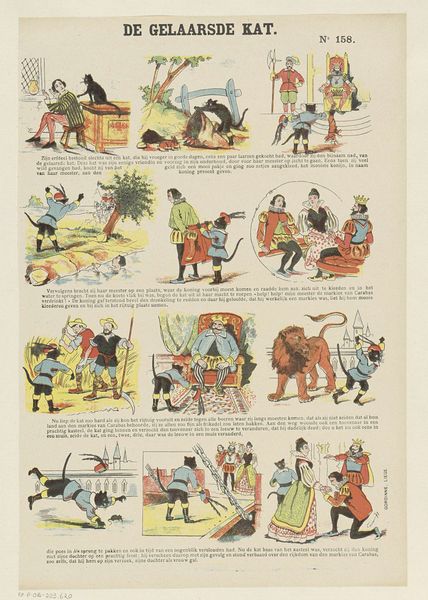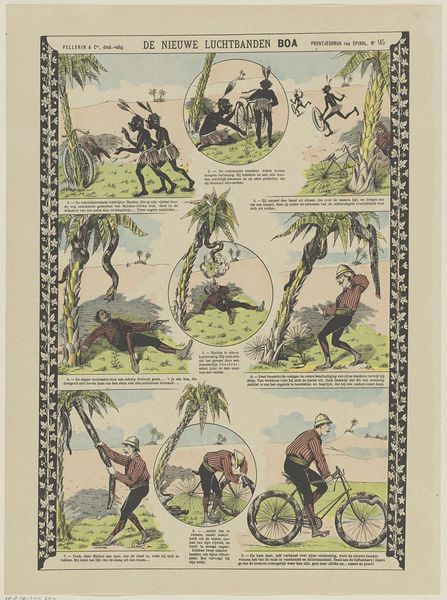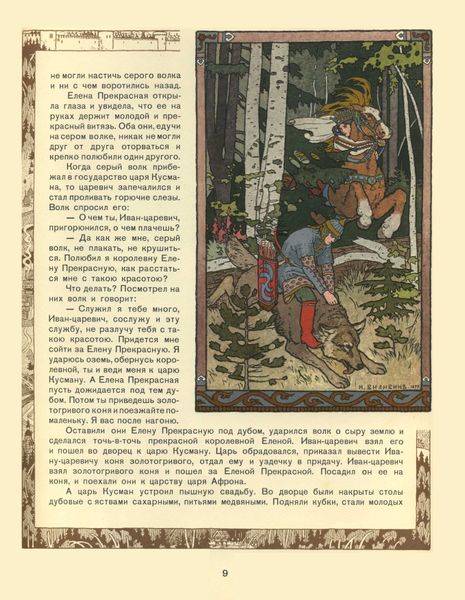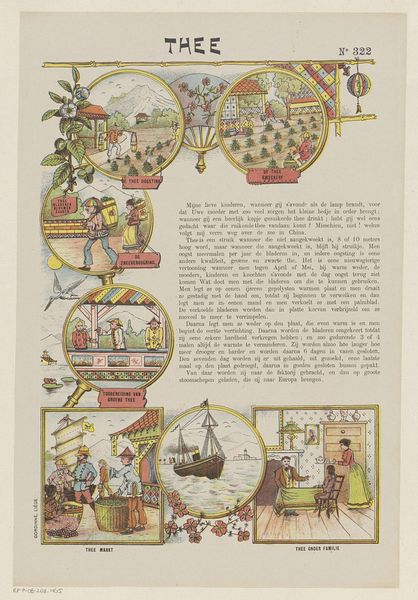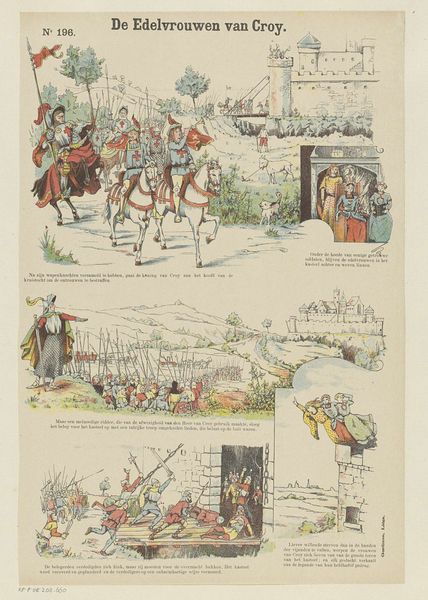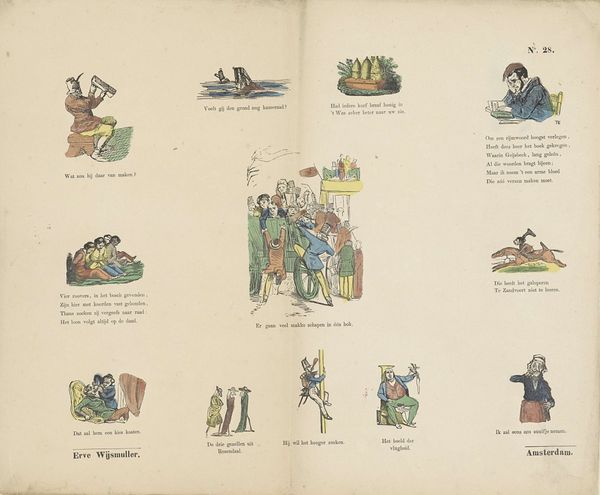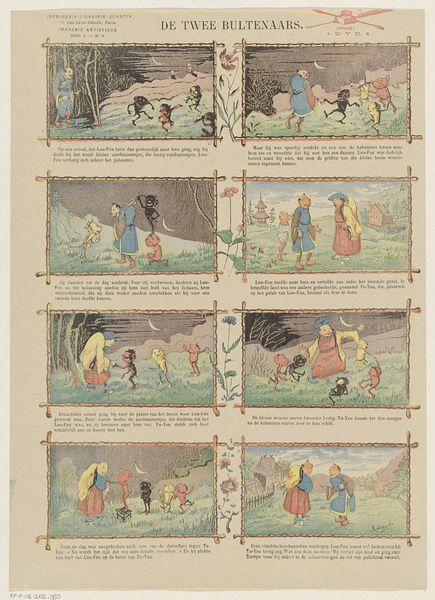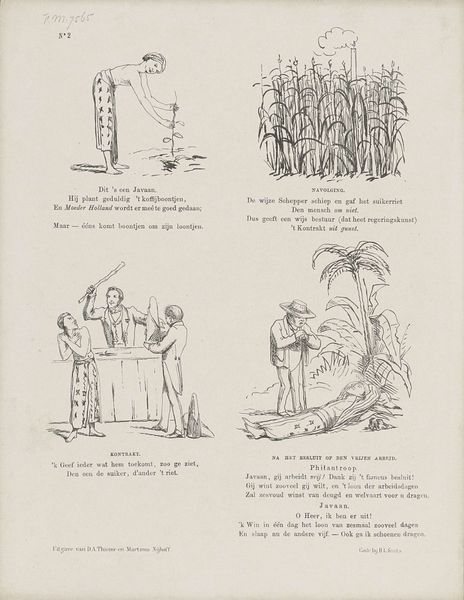
print, watercolor
# print
#
watercolor
#
cityscape
#
islamic-art
#
watercolour illustration
#
genre-painting
Dimensions: height 399 mm, width 266 mm
Copyright: Rijks Museum: Open Domain
Curator: This piece, "Het kamp der Bedoëienen / Egypte / een haven te Caïro", roughly translated to "The Camp of the Bedouins / Egypt / A Harbor in Cairo," dates to somewhere between 1894 and 1959 and is the work of A. de Ker. It's rendered in watercolor and print. What do you see when you first look at it? Editor: A pastiche. There's a romantic yearning for the "Orient," mediated through a very particular lens—that of European colonialism. The muted colors evoke a nostalgic atmosphere, one where culture and landscape are flattened into something easily consumable. Curator: That's a sharp read! The dual perspective—Bedouin camp and the Cairo harbor—plays interestingly. It’s almost like comparing two worlds. The top frame, portraying the Bedouin camp, is more intimate. Note how figures relax amidst simple tents and camels. What does this frame convey for you? Editor: The composition sets up an inherent power dynamic: a romanticized vision of nomadic life juxtaposed with a romanticized Cairo. Both are framed and presented as "other." I see themes of exoticism at play. Are we invited to admire, or to "study?" Curator: Food for thought indeed. Now consider the second frame. The architectural grandeur surrounding figures heading to Cairo… there is such a different feel to this busy marketplace! Is that suggestive of "progress" perhaps, against the stillness in the other frame? Editor: Possibly. But progress for whom? Who gets to benefit from this development? These images always prompt me to ask: who is missing? Who doesn't get represented? This romanticized vision conceals the harsher realities of colonial exploitation. Curator: Absolutely valid, I am with you there. Even the idyllic presentation masks that inconvenient truth! Yet perhaps, in this very act of preservation—flawed and tainted as it is—some truth remains as a window onto a lost world. Editor: Perhaps… but our role is to never forget what's outside the frame too. Thank you!
Comments
No comments
Be the first to comment and join the conversation on the ultimate creative platform.
